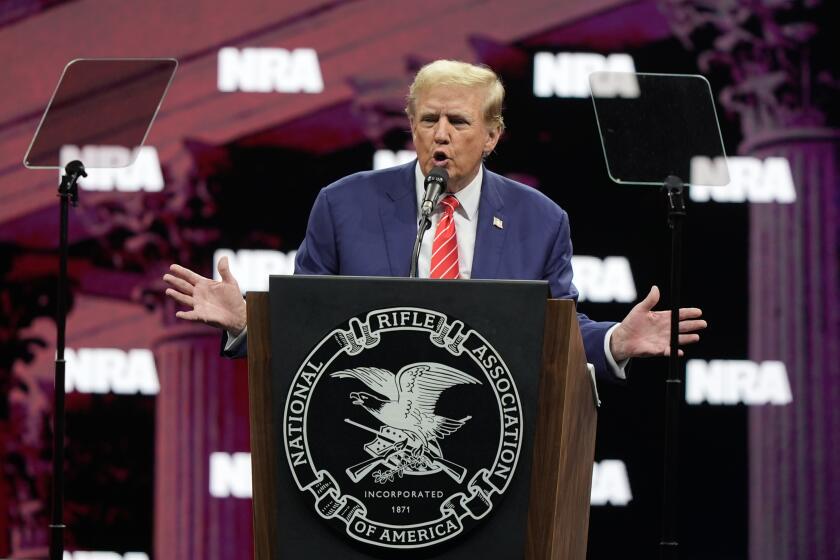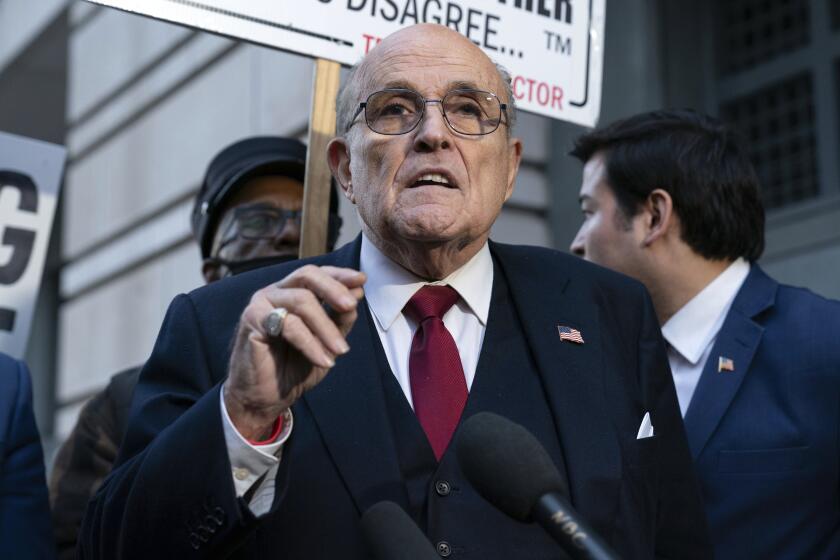Dissent Alive in Hong Kong
The forecast was bad for Hong Kong’s weather and voter turnout. The prediction proved to be right concerning the weather, but residents braved the torrential rains to vote in record numbers last weekend in the former British colony’s first election under Chinese sovereignty. These were voters with a mission: They soundly returned pro-democracy legislators who were booted out of office last July when Beijing disbanded the elected legislature and handpicked a provisional legislature.
Hong Kong residents boldly signaled that they are not apathetic, as was widely presumed, or content with Chinese rule. They treasure their independence and are unwilling to accept a fully appointed government.
That political will was not a sure thing. Hong Kong voters are new at participating in direct elections, having done so for the first time in 1991. They turned out in high numbers then, but enthusiasm dwindled in the last election under British rule, in 1995. So last weekend’s volume of voters--usually wringing wet--surprised everyone.
Members of the three main pro-democracy parties--led by Martin Lee of the Democratic, Emily Lau of the Frontier and Christine Loh of the Citizens’--were returned to the Legislative Council. The three parties together gained all 20 elected seats, with the Democratic Party securing the largest number. These legislators are expected to be a crucial means of expression for the people, but they will not make up a voting majority in the council because only 20 of the 60 representatives are directly elected. The others are chosen by professional or corporate groups or by an election committee, all dominated by pro-business and pro-China interests.
The rules of government also tilt hard toward China. The council cannot introduce bills without approval from Beijing’s appointed chief executive for Hong Kong, Tung Chee-hwa. In addition, China’s parliament can veto laws passed by the council or even dissolve it. China’s announced plan is to phase in a fully elected legislature over a span of years.
Despite all of the impediments, the return of pro-democracy representatives to the council ensures that the body will not be merely a rubber stamp for Beijing. The council has the capacity to be a public sounding board and a moral force. It can call public inquiries to hold officials accountable, something unheard of in China. And by their presence in the legislature, democracy activists regain their legitimate public voice.
The resounding message in the Hong Kong election: Voters won’t submit to China-style government and they intend to hold Beijing to its promise of “one country, two systems.”
More to Read
Start your day right
Sign up for Essential California for news, features and recommendations from the L.A. Times and beyond in your inbox six days a week.
You may occasionally receive promotional content from the Los Angeles Times.






